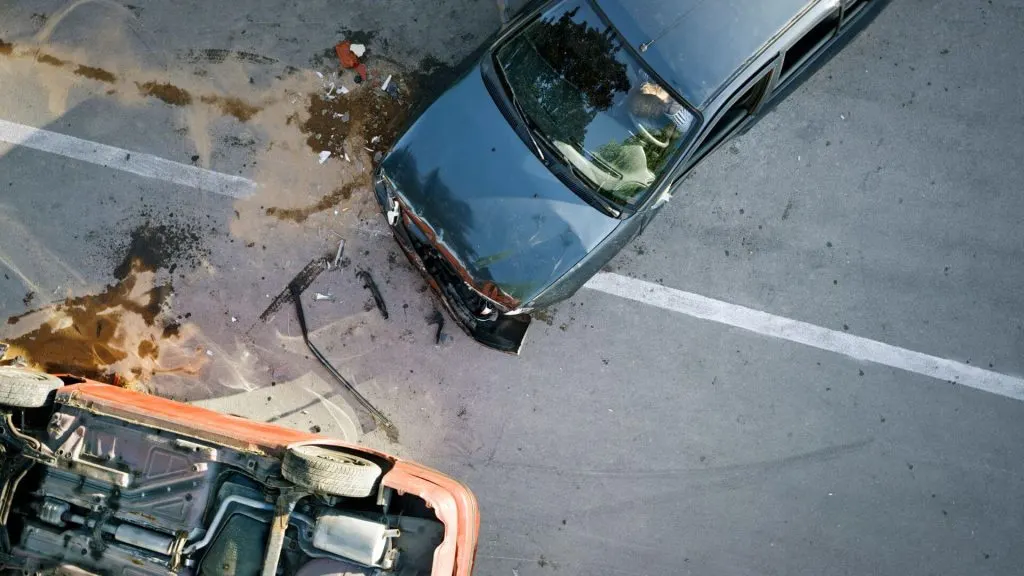You might go through your whole life and never experience a car accident. If so, that’s lucky. Most people experience at least one car accident in their life. The more you drive or sit in the passenger’s seat, the better the chances you’ll go through a car wreck firsthand.
If that happens, maybe you’re fine. You might not suffer a scratch. The seatbelt holds you in place, and the wreck shakes you up but does no lasting damage. Simple fender benders don’t usually have many adverse effects.
However, more serious car wrecks often bring more severe consequences. Your insurance premium might go through the roof, and you must also repair your car. Also, about half of car wreck survivors develop PTSD. That number might shock you, but it’s true.
We’ll talk about that in detail right now.

What is PTSD?
PTSD is a condition that many people develop. It means you have deep-seated emotional or psychological trauma following a particular incident.
Many times, you’ll hear people discuss PTSD following combat situations. That certainly happens often. Soldiers who see combat can develop PTSD when they return from war. They can’t easily reclaim their old lives since they’ve witnessed atrocities and fearful things. They might wake up screaming in the night or clutching a firearm.
PTSD impacts many individuals, though, and not just soldiers. You can develop it from a dog attack that seriously hurts you. You can develop it following an earthquake, tornado, or some other serious weather emergency.
You might develop it following domestic violence or a sexual assault. You can also develop it following car wrecks, especially if they’re high-speed collisions or ones that leave you permanently or seriously hurt.

Why Don’t More People Discuss This Connection between PTDS and Car Wrecks?
Since car wrecks happen often, some people feel they’re not a big deal. Maybe a car makes an unsafe turn and strikes your vehicle. You’re not seriously hurt, so your friends, coworkers, or even family members feel you can probably walk it off and resume your life without any issues.
That happens sometimes, but not always. Many people don’t realize the trauma that can accompany a car accident.
You might relive the moment the other car comes at you repeatedly. You don’t like replaying it in your mind, but you do it anyway. You see the car approach, but you can’t move your vehicle in time. It’s like a dream you can’t escape.
You might shake when driving now or even when you get into a car and sit in the passenger’s seat or the backseat. You may sweat or feel your heart racing. The more serious the accident, the worse your PTSD is in many instances.

What Can You Do About It?
You probably realize that you must start driving again at some point or at least ride in cars. It’s hard getting through life if you can’t do those things.
You might need therapy, though. That usually helps people with PTSD, not just from car wrecks but from anything else.
Therapy lets you discuss your fear with a trained medical professional. Certain counselors work with PTSD cases. They’ll have exercises you can do or medication you can take.
Meds can help with the fear or anxiety; in time, these sessions should get you back on track. Car wrecks might seem awful when they happen, but usually, these cases don’t equal war trauma. Most times, you can come back and reclaim your life eventually, though it may take some hard work and dedication.
You Can Recover in Time
In the meantime, you can do what the doctor recommends. You might try breathing exercises before getting in the car. You may also take public transportation until you feel more secure.
Don’t let anyone belittle your condition or say you don’t have valid feelings. They didn’t go through it and don’t know what you’re experiencing now. If you need recovery time before driving again or getting in a car, take the time you need.
Most times, PTSD passes. You might never get over it entirely, but the expression that time heals all wounds holds. You will probably reach a point where you can drive again or at least get in a vehicle.
You’ll have a hard life if you can’t, but you must live your truth. Take the time you need, work through your trauma, and hopefully, things will gradually get more manageable.

Jessi is the creative mind behind The Coffee Mom, a popular blog that combines parenting advice, travel tips, and a love for all things Disney. As a trusted Disney influencer and passionate storyteller, Jessi’s authentic insights and relatable content resonate with readers worldwide.
